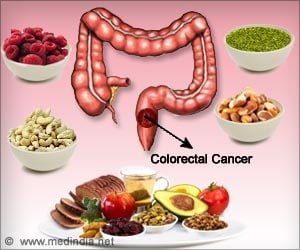Indolepropionic acid, a gut microbial metabolite of fiber rich diet, is associated with a reduced likelihood of progression to type 2 diabetes.
Highlights
- Indolepropionic acid is produced by intestinal bacteria, and its production is boosted by a fiber-rich diet.
- A diet rich in whole grain products and dietary fiber increased the indolepropionic acid concentration.
- A high concentration of indolepropionic acid in the serum was discovered to protect against diabetes.
The researchers investigated the serum metabolite profile of 200 participants with impaired glucose tolerance, who either developed type 2 diabetes within the first 5 years, or did not convert to type 2 diabetes within a 15-year follow-up.
The differences between the groups were analysed by non-targeted metabolomics analysis. Instead of focusing on just a few pre-defined markers, metabolomics analysis allows for the determination of the study participants' metabolic profile, i.e. the concentrations of several metabolites.
The greatest differences in the metabolic profiles of those who developed type 2 diabetes and those who didn't were observed in the concentrations of indolepropionic acid and certain lipid metabolites.
A high concentration of indolepropionic acid in the serum was discovered to protect against diabetes. Indolepropionic acid is a metabolite produced by intestinal bacteria.
In addition to the DPS data, the association of indolepropionic acid with the risk of diabetes was also studied in two other population-based datasets: in the Finnish Metabolic Syndrome. In these datasets too, indolepropionic acid was discovered to protect against diabetes.
The concentrations of these metabolites were also associated with dietary fat: the lower the amount of saturated fat in the diet, the higher the concentrations of these metabolites. Similarly to indolepropionic acid, high concentrations of these lipid metabolites also seemed to protect against low-grade inflammation.
"Earlier studies, too, have linked intestinal bacteria with the risk of disease in overweight people. Our findings suggest that indolepropionic acid may be one factor that mediates the protective effect of diet and intestinal bacteria," Academy Research Fellow Kati Hanhineva from the University of Eastern Finland says.
A direct identification of intestinal bacteria is a complex process, which is why identifying the metabolites produced by intestinal bacteria may be a more feasible method for analysing the role of intestinal bacteria in the pathogenesis of, for example, diabetes.
Reference
- Vanessa D. Mello et al., Indolepropionic acid and novel lipid metabolites are associated with a lower risk of type 2 diabetes in the Finnish Diabetes Prevention Study, Scientific Reports (2017) https://www.nature.com/articles/srep46337.
Source-Medindia
















